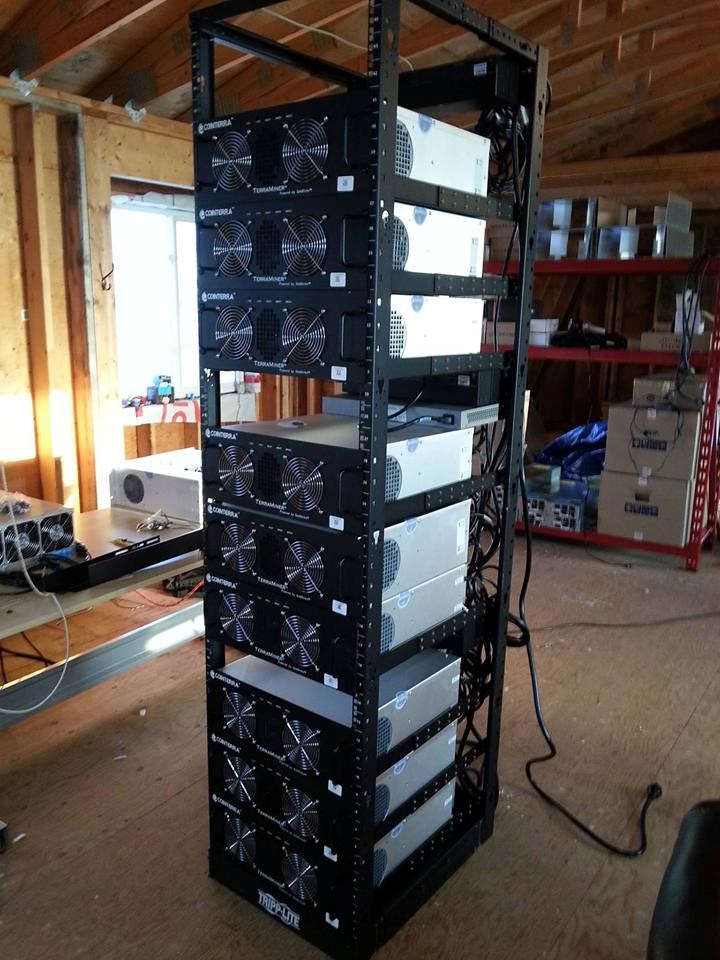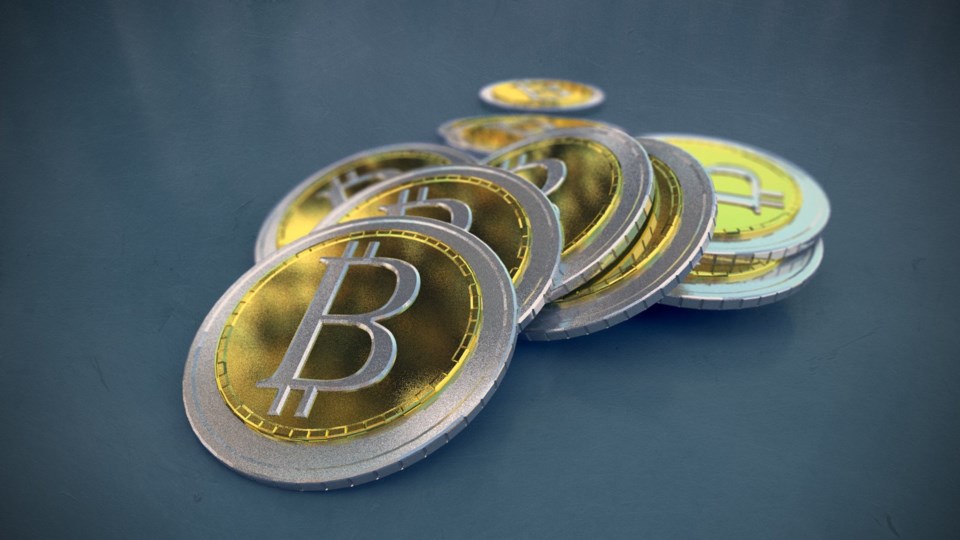SB lives in a modest home not far from Virden. You'd never guess that inside is an expensive cluster of highly specialized computers working constantly and generating massive amounts of heat and noise.
Under his watchful guidance, the equipment is mining Bitcoins, the most popular cryptocurrency in the world. (We’re using his initials only to protect his property.)
What is a Bitcoin?
In layman’s terms, Bitcoin is a computer app that acts like a wallet. It replaces cash and credit cards. It makes banks unnecessary.
Bitcoin is a peer-to-peer system of buying and selling, which means there are no middlemen taking a cut from each transaction.
The currency is kept in circulation by people like SB called Bitcoin miners. They’re located all over the world and have extremely fast supercomputers.
Their self-appointed role is to create new Bitcoins, process transactions, keep a public record of each transaction, and get rewarded for their trouble – in Bitcoins, of course.
Profitable? Yes, says SB, but not cheap.
"There is a couple hundred thousand dollars of computer equipment here, and they are machines that basically print money.”
He likens it to alchemy, “turning electricity into Bitcoin gold”. It also turns electricity into heat. Lots of heat.
In winter, he and his wife rarely need to fire up the furnace. In fact, they often have the windows open and it’s still 80 F inside. Their hydro bills are around $7000 a month.
Bitcoin Miner
What seems like an eccentric career choice was more of a natural progression for SB, a computer geek who gets a kick out of building complex data centres.
“I worked in computers for years. I was the person who set up and ran Manitoba’s first commercial Internet provider back in 1994. And back then, people thought THAT was a crazy idea, just like Bitcoin now.”
He also used his computing power to help the University of California Berkeley with research into cures for Alzheimer’s, Huntington’s Disease and some forms of cancer.
His foray into Bitcoin began in 2011, just three years after the financial crisis on Wall Street that rippled around the world - a time when people were looking for a safer way to invest their money.
"I had a hobby of building powerful computers for fun mostly,” he said. “One day a friend of mine from Silicon Valley told me about Bitcoins, and I started to use my homemade supercomputer to make money.
“Before that, I used it to help look for radio signals for the SETI (Search for Extra Terrestrial Intelligence) project!"
He has had to replace his Bitcoin supercomputers several times at great cost as the technology becomes faster, smaller, and more efficient. But it still takes several 1000-pound racks of the units to get the job done.

Bitcoin byproducts
These days, SB is exploring new ways to use all that excess heat.
“My idea was to use the waste heat to heat a greenhouse and a large water column to raise fish in, then use the waste from the fish for the green house. So the plants would eat the waste and filter the water, which is then reused for the fish.”
That indoor ecosystem hasn’t materialized yet but SB does have a tropical fish breeding operation in the basement. His computers heat the water to a balmy 80 F.
“Another interesting idea is using solar or wind power to run the thing. Hydro is offering me about $80,000 to build a solar array based on my previous power usage.”
New frontiers
Bitcoin mining has opened up another door for the Bitcoin Baron of Westman; he’s expanded his resume to include consulting.
He’s currently helping set up a Bitcoin mine in Winnipeg that he predicts will be the largest one in Canada.
With everything he has invested in and earned from Bitcoin, it comes as no surprise that SB believes the currency will eventually replace money as we know it.
He’s banking on it.
Bitcoin background
Bitcoins were created in 2009 by a mysterious person or group that has never been identified.
At that time, one Bitcoin was worth only $0.0008. At press time, they were trading at over $9,000 each.
The number of Bitcoins in the system will continue to grow until 2040 when the number in circulation hits 21 million, then production will end as will the rewards paid to Bitcoin miners.
In 2015 there were an estimated 100,000 merchants that accepted Bitcoins as currency. A 2017 study found that between three and six million people use a cryptocurrency wallet, most of them Bitcoin users.
Both numbers are expected to rise as Bitcoin gains acceptance.




